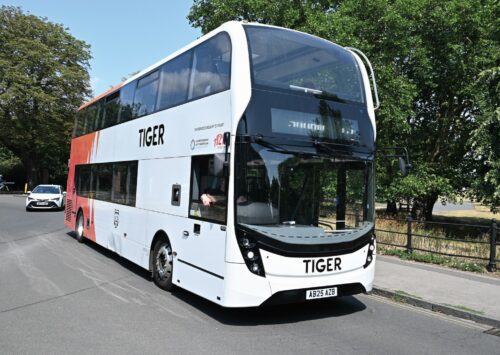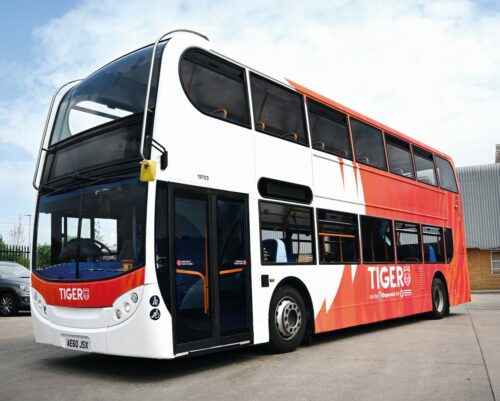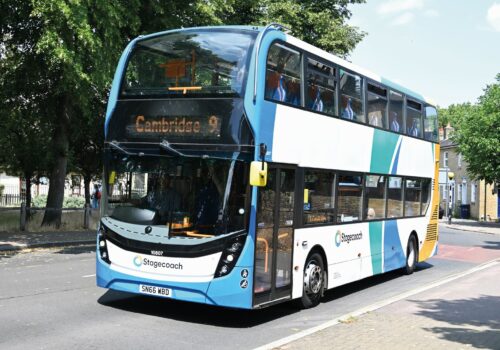
A decision to end its reduced fare cap early means fare increases for passengers in the Cambridgeshire and Peterborough area, reports Steven Knight
Bus passengers across the Cambridgeshire and Peterborough region face a second fare increase in four months after the Cambridgeshire & Peterborough Combined Authority (CPCA) voted to end its reduced bus fare cap two months early. The Authority maintained a £2 maximum single fare when the Government scheme increased to £3 on 1 January, and the Combined Authority Board agreed in January 2025 to retain a reduced fare cap through until December 2025 but with an increase to £2.50 from July 1.
At the Combined Authority Board meeting on July 22, just three weeks after the fare cap was increased by 50p, the Authority voted to remove the subsidised cap from 31 October, with the national £3 cap then being implemented. The Authority confirmed to CBW that based on operator data, approximately 650,000 to 700,000 journeys per month were being made utilising the fare cap.
Funding for the fare cap has come from a BSIP (Bus Service Improvement Plan) revenue grant but between January and March this year funding also came from the authority’s transport reserves. The abolition of the local fare cap is estimated to release a spend of £1.4m from BSIP+ funds, which the Authority says it will use to extend the current under 25s ‘Tiger Pass’ scheme through until March 2026; without injection of monies, the Tiger Pass would have run out of funding in November. The current Tiger Pass scheme was approved by the CPCA Board and Transport & Infrastructure Committee in late 2023 and implemented from May 2024. The pass is available to under 25s and when shown on the bus a £1 discounted fare is available. A report to the Transport Committee on July 8 reported that 45,450 Tiger Passes had been issued with around 1.8m journeys being made so far.

The current Tiger Pass scheme will now continue until March at a cost of around £2.28m, allowing time for a viable long-term solution to be developed and approved, to allow a modified discounted scheme to continue.
The July 8 CPCA Transport Committee Meeting on 8 July was presented with details of subsidy paid to bus operators and the total number of passenger journeys recorded for tendered services. The Authority has previously debated a benchmark of £12 subsidy per passenger journey but has not formalised this and several contracts significantly exceed this level.
The report detailed 26 supported services having a higher than £12 cost per passenger with service 15 from Haslingfield to Bassingbourn and Royston coming in at £180.32 per passenger journey. In 2024/25 271 passenger journeys were made on the route, a reduction of 110 on the previous year. A passenger subsidy of £100.33 per journey was reported for the 8A from March to Cottenham.
The Transport Committee also received details of the passenger numbers and average subsidy per passenger for the Tiger on Demand DRT services which launched in January 2025. Average passenger boarding across the four areas was 1.53 per hour; see the table below for a break-down of the costs.
There had been a proposal before the Combined Authority Board to terminate the three most heavily subsidised routes in terms subsidy per passenger, those being the 15 and 8A as detailed above and the South Cambridgeshire DRT, operation to release funds to allow replacement services to be procured for route 31 from Ramsey to Whittlesey and route 9 from Littleport and Ely to Cambridge, which Stagecoach East is withdrawing at the end of August.

These are expected to require funding of £167,000 from the start of contracted services later this year through until March 2026 and then around £530,000 per full year, but for the 2025/26 financial year funding is expected to come from Authority reserves and other budgets including an IT underspend. Separately, a tender is currently out for a replacement service from March to Whittlesey which is also being withdrawn by Stagecoach East. The Combined Authority has recently awarded contracts for several Tiger routes, which have been funded through the region’s Mayoral Precept. The Combined Authority has confirmed that these contracts stipulate a requirement to operate vehicles in ‘Tiger’ livery, which suggests that it will become the identity for franchised operations in the future.
The Authority says it is still committed to the introduction of a new ‘orbital’ service in Peterborough but that consultants Systra have been commissioned to redesign the proposed route; Stagecoach was initially awarded the contract but subsequently chose not to take it up; on the second tender round there were no compliant bids.
CBW also asked the Authority about its plans for an area-wide multi-operator ticket, which had been mooted back in 2022. A spokesperson said: “A multi operator bus ticket across the region has not been launched to date. The success of the fare cap has lowered the need for a ticket such as this in the short term. However, we are expecting a proposal from local operators in the coming months. Fares and ticketing products are also a key part of franchising implementation over the medium to long term.”

